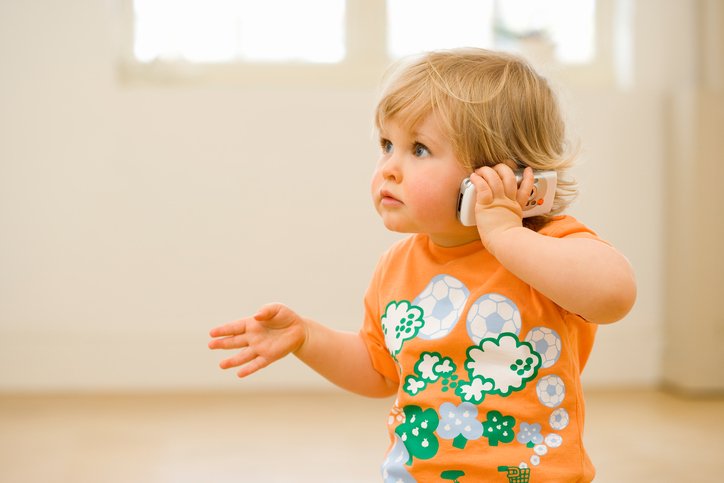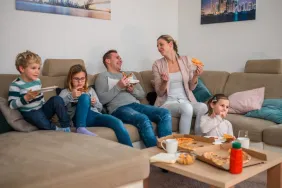After months of desperately trying to read nonverbal cues and listen for the meanings of ever so slightly different cries, talking is a very exciting (and welcome) milestone. Like most developmental milestones, however, it takes time and practice to progress from single words to stringing two or three words together to using complete sentences.
Talking and listening go hand in hand. By listening to others speak, your baby learns what words mean and how to put them together. Verbal skills develop in stages, and children reach those stages at different times.
Below is a general guideline for how and when toddlers develop verbal skills, but don’t worry if your child doesn’t meet each benchmark within the identified timeframe. There are a variety of factors that underlie language development, and some kids talk earlier or later.
12 to 18 months
By your child’s first birthday, he’ll likely use one or two words meaningfully. He might even use those words out of context at times. Over the next few months, he’ll attempt to copy words he hears often and babble to mimic conversational skills.
During this timeframe, your toddler will likely use a number of gestures to communicate needs and practice using voice tone to convey questions, assertions, or other needs. You might notice increased frustration during this time as your toddler struggles to communicate his needs. This is actually a healthy sign of development, though it can be upsetting for parents struggling to understand the toddler’s needs.
By 18 months, your toddler will start using common consonant sounds such as t, d, n, w, and h. These sounds open the door to a variety of new and exciting sounds and words, and this helps your toddler expand his vocabulary.
19 months to 2 years
By this stage of development, your toddler understands simple questions and directions. During this time, your toddler will add more words to his vocabulary each month, many of them nouns that describe the objects he encounters frequently.
Your toddler now understands that he needs language to communicate his needs, and you’ll notice that he strings together two words to get his point across. You might hear odd constructs like, “me go” or “carry up.”
By around your child’s second birthday, he’ll begin to string together 2 to 4 words and sing familiar tunes. Nursery rhymes and children’s songs are a great way to build language during this time.
2 to 3 years
Once your toddler’s vocabulary begins to grow, trying out voice tone and sound levels isn’t far behind. If you notice that your toddler seems to yell everything, that’s because he’s experimenting with his voice!
Between the ages of 2 and 3, your toddler’s vocabulary will grow to 200 words and he’ll begin to use pronouns (though often incorrectly.) He’ll string together words to create simple sentences that have a specific meaning, like, “I play now.”
This is also the time that your toddler will begin to answer your questions. Keep your questions and statements simple to help your toddler understand. At this point, your toddler should use two-word phrases, mimic your familiar expressions, and respond to his name. If you notice that your toddler lags in these areas by this age, it’s a good idea to mention it to your child’s pediatrician.
3 years and up
By age 3, your child is a more sophisticated talker and much easier to understand. He’ll be able to carry on a conversation, adjust his voice tone, and engage in storytelling. You might even notice that your child adjusts his speech when talking to other kids and adults. He might use simpler phrases with other kids, but attempt more complex language at home.
How to promote language development:
Language development begins at home, and there’s a lot you can do to help your child work on verbal skills.
• Talk often – You don’t need to talk nonstop, but frequent narration and conversation (even if it’s one-sided) helps your child internalize the process of communication.
• Read – Reading is a great way to expose your child to new words and sounds.
• Listen – Use active listening skills when your child attempts to communicate with you. Make eye contact, repeat back what you hear, and use nonverbal communication.








